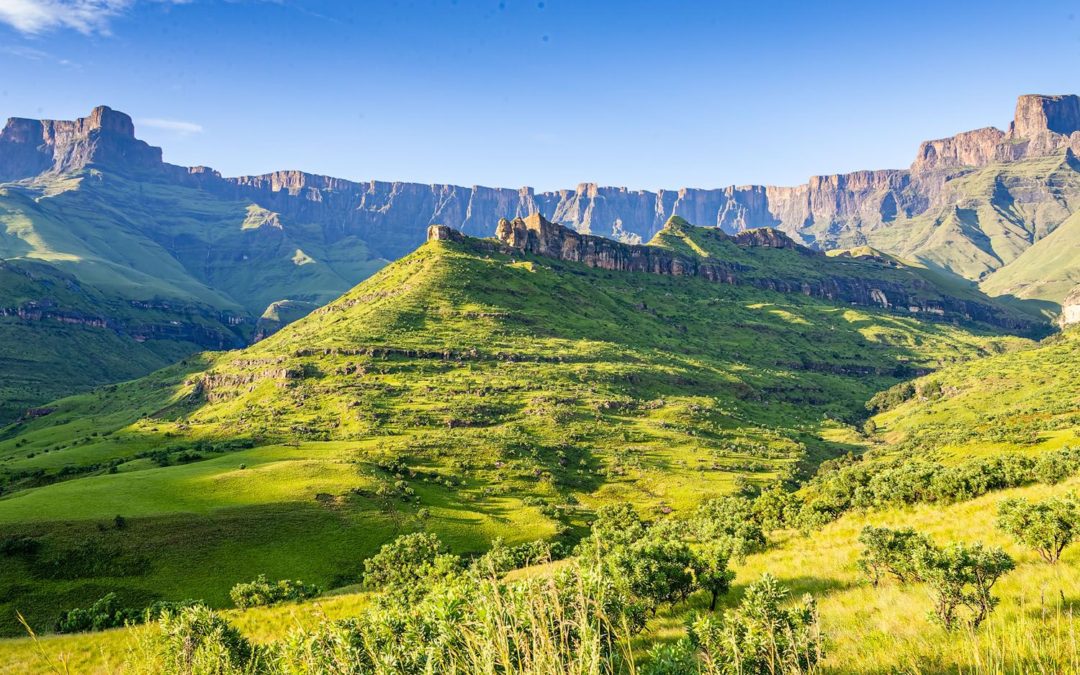The Climate Change Conference of the Parties (COP) summit brings parties together to discuss and take action towards the goals of both the Paris Agreement and the UN Convention on Climate Change. COP is held each year for about two weeks but was canceled in 2020 due to COVID-19. This year, the conference is being held in Glasgow from October 31st to November 12th. Over 25,000 people are expected to attend this year, including 120 world leaders. The COVID-19 crisis has led many nations to evaluate priorities, including the importance of the environment. Many nations are attempting to rebuild their economies with an emphasis on using sustainable and green methods. OneNature believes that achieving the goals addressed at COP26 with an emphasis on nature-based solutions, and Indigenous and locally-led decision-making is critical for creating a sustainable future based on the wellbeing of all beings.
This year’s three main agenda items are agreeing to the Paris Rulebook, keeping the goal of only a 1.5-degree increase in global temperature alive, and achieving a $100 billion climate finance goal. The Paris Rulebook addresses questions about how countries should prepare and execute their nationally determined contributions. It includes how countries can remain transparent so that other countries and stakeholders can view and understand each country’s plan to account for and lower emissions. Keep 1.5 alive is an attempt to keep global temperature rise below 1.5 degrees. It also lays out the key actions needed to deliver the Paris Agreement and limit climate change to 1.5 degrees. The $100 billion climate finance goal is a commitment made by developed nations to mutually mobilize $100 billion to aid and support developing nations in mitigating and adapting to climate change.
This year’s summit is more important than ever. Achieving the targets of the COP is crucial if climate change is to be brought under control. About 200 countries are being asked to create a plan to cut down on emissions, possibly leading to significant changes in our everyday lives. In contrast to the previous COP summits, several countries are insisting we act fast and effectively to combat climate change and diminish its effects throughout the world.
In February of 2021, the United States rejoined the Paris Agreement after briefly withdrawing in 2019. Recently, President Biden announced the Build Back Better Framework to set the United States on course to meet its climate goals. This plan is the largest effort to combat the climate crises in the history of the United States. The plan aims to cut climate pollution by over one gigaton of greenhouse gas emissions by 2030. The $555 billion investment of this framework is at least ten times greater than any legislation Congress has ever passed but is vitally important to secure a liveable future for all.
Many of these global commitments will need to be implemented at the local level. There’s a tendency to prioritize technological solutions to address climate change without addressing the underlying causes with an emphasis on extraction of resources and economic growth that fuels climate change. Sustainable solutions must fundamentally address a change in values and a shift in the way that people engage with the planet. Meeting our climate goals could result in a better, happier life for people and securing the future for wildlife if we do it well.
Nature-based solutions are centered around working with nature to address the challenges we face as a society through protection, restoration, and management of natural ecosystems. It wields benefits for both the wellbeing of humans and biodiversity. Nature-based solutions are gaining traction within the international policy and business domain because of their ability to offer potential to address both causes and consequences of climate change all while supporting biodiversity. Overcoming the issues addressed during COP requires significant systemic change in how we organize and run our institutions and the integration of more nature-based solutions will prove beneficial. Nature-based solutions are a key player in enabling sustainable development and it’s vital we take advantage of the benefits of using them.
Centering the conversation on nature-based solutions around local and Indigenous leaders in the field is also vital to the sustainability of these approaches. The first-hand experience that Indigenous and local communities possess on the topic of biodiversity and conservation will prove exponentially useful in efforts to reach the goals laid out in the Paris Agreement. The survival and prosperity of local wildlife populations are dependent on the decision-making of local communities and people stewarding the world’s wildlife. By shifting the conversation to include Indigenous and local communities, we will be able to make successful strides towards meeting our environmental goals.
The discussion and negotiations taking place in Glasgow at COP26 are all in efforts to aggressively cut down on greenhouse gas emissions and slow the warming of the Earth. These commitments are vital to the future of the earth and humanity. Centering these solutions around wellbeing for people and the planet by emphasizing biodiversity, nature-based solutions, and the local decision-making authority of the people stewarding it is vital to ensuring the successful implementation of these commitments now and in the future
Sources:
UN Climate Chance Conference UK 2021
Are Countries Providing Enough to the $100 Billion Climate Finance Goal?
Keeping 1.5°C Alive: Actions for the 2020s
Navigating the Paris Agreement Rulebook
